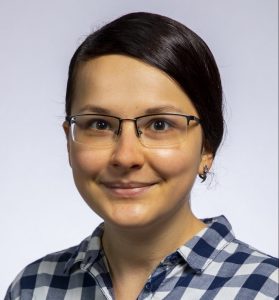
March 9, 2022
Single-cell immune profiling of Q fever vaccination in mice
Human Q fever is a worldwide zoonotic disease caused by intracellular Gram-negative bacterium, Coxiella burnetii. Human Q fever has high infectious nature. However, there is no FDA approved vaccine in the US. Previous studies showed that after serial passages in eggs and tissue cultures, C. burnetiid undergoes a lipopolysaccharide (LPS) phase variation in which its virulent smooth LPS phase I (PI) converts to an avirulent rough LPS phase II (PII). A formalin-inactivated PI vaccine (PIV) was demonstrated to be more protective than PII vaccine (PIIV) in guinea pigs. The research objective is to understand the mechanisms of vaccine-induced protective immunity…

March 9, 2022
Identification of biomarkers and therapeutic combinations for immune checkpoint inhibitors (ICIs) using explanatory subgroup discovery for cancer patients without EGFR mutation
Phenotypic and genotypic heterogeneity are characteristic features of cancer patients. To tackle patients’ heterogeneity, immune checkpoint inhibitors (ICIs) represent one of the most promising therapeutic approaches to treat cancer. However, 50% of cancer patients that are eligible for treatment with ICIs will not respond well to this kind of therapies. Over the years, multiple patient stratification techniques have been developed to identify homogenous patient subgroups, although, matching patient subgroup to treatment option that can improve patients’ health outcome remains a challenging task. To address this problem, we developed a novel informatics framework that consists of two modules: subgroup discovery and…

March 1, 2022
A Privacy-Preserved Transfer Learning Concept to Predict Diabetic Kidney Disease at Out-of-Network Siloed Sites Using an In-Network Federated Model on Real-World Data
Successful implementation of data-driven artificial intelligence (AI) applications requires access to large datasets. Healthcare institutions can establish coordinated data-sharing networks to address the complexity of large clinical data accessibility for scientific advancements. However, persisting challenges from controlled access, safe data transferring, license restrictions from regulatory and legal concerns discourage data sharing among the in-network hospitals. In contrast, out-of-network healthcare institutions are deprived of access to any big EHR database; hence, limiting their research scope. The main objective of this study is to design a privacy-preserved transfer learning architecture that can utilize the knowledge from a federated model developed from in-network…

March 1, 2022
Survival analysis in Stage II and III Colorectal Cancer Patients Using Novel Exploratory Data Mining
This study leverages clinicopathological data and genomic mutations based on a framework that includes a companion diagnostic template and a novel explainable AI algorithm to improve the selection of prospective patients for adjuvant therapy in colorectal cancer (CRC). Integrating these two emerging technologies may offer better solutions for assessing treatment outcomes by embracing a data-driven, translational approach to patient care. Exploratory data analysis discovered a sizable collection of CRC patient subgroups within Stages II and III, using criteria that ensure the significance of prevalence for these gene mutations, respective of their group. [1] CRC patient data was…

Feb. 16, 2022
Modeling Pyrus calleryana spread in central Missouri using remote sensing and a non-parametric modeling approach
Invasive species pose a unique threat to native species and habitat through direct and indirect competition of resources. Management of invasive species depends on precise identification of their current range and knowledge of how they spread. This project will utilize Plantescope Satellite Imagery to identify the presence of Callery Pear, an invasive ornamental tree species in Missouri. The unique phenology of the Callery Pear should allow for precise identification through Random Forest classification of the imagery. After identification, a logistic model will be built to predict the presence or absence of Callery Pear in the landscape based on a variety…

Feb. 16, 2022
Developing a Web-Based Interface to Manage Sensor Technologies in the Homes of Older Adults
Internet of Things sensors capture daily activities and physiological data that can improve care for older adults. Sensors have the potential to enable health coaching for self-management and care coordination by connecting individuals to care providers and informal caregivers. However, remote management of diverse sensor technologies and integration of disparate data for decision-making are major barriers to this goal. Our aim is to support community-based intervention research through the design of a web-based interface management system for smart home and wearable technologies in the haomes of older adults. The Age-Friendly Sustainable Smart and Equitable Technologies (ASSETs) dashboard relies on low-cost Raspberry Pi…

Feb. 10, 2022
The impact of treatment adjustment in breast cancer by Cerner Real-World Data during pandemic
The global burden of the ongoing COVID-19 pandemic has predominantly been measured using metrics like case numbers, hospitalizations and deaths. However, the short-term health impacts are more difficult to capture, especially for breast cancer(BC) patients. An expert opinion formulated by multiple national organizations provided preliminary guidance on the prioritization and treatment of breast cancer(BC) during this covid outbreak. Most breast surgery and adjuvant treatment for malignant conditions have been postponed or adjusted. As we know, BC treatment is time-dependent. How standard treatment modifications and surgery postponement would affect BC patients are unknown. Currently, there is no research that has applied…

Jan. 14, 2022
The Soybean Allele Catalog Tool: A Web-Based Interactive Tool for Gene Alleles Discovery
The advancement of sequencing technologies has made a plethora of whole genome sequenced (WGS) data publicly available. However, utilizing the raw WGS data will not generate promising research outcomes for agriculture. To solve this problem, the Soybean Allele Catalog Tool (https://soykb.org/SoybeanAlleleCatalogTool/search.php) has been developed to assist researchers in gaining insights into soybean genotypes associated with phenotypes and selecting accessions based on comprehensive soybean SNPs and InDels data organized into alleles of genes. A variant calling pipeline (SnakyVC, https://github.com/yenon118/snakyVC) and an Allele Catalog pipeline (AlleleCatalog, https://github.com/yenon118/AlleleCatalog) were developed to prepare the datasets for the tool. The variant calling pipeline processes…

Nov. 11, 2021
An Evaluation of an Electronic Medical Record (EMR) Based System to Characterize and Correlate Physician Burnout and EMR Use
Burnout disproportionately affects healthcare workers and continues to rise, contributing to cost, quality, and patient safety risk in an already overburdened United States healthcare system. While the causes of burnout are complex, evidence suggests that Electronic Medical Record use (EMR) is one major contributor due to the increased clerical burden that decreases patient contact time and disrupts the provider clinical workflow. The challenge of improving the physician EMR experience is exacerbated both by variability across venues and specialty. Targeted training and optimization efforts are generally deployed one-time at a clinic or specialty level but are challenging to deploy longitudinally and in surveillance mode due to the cost and effort of administering traditional survey instruments. To address this…